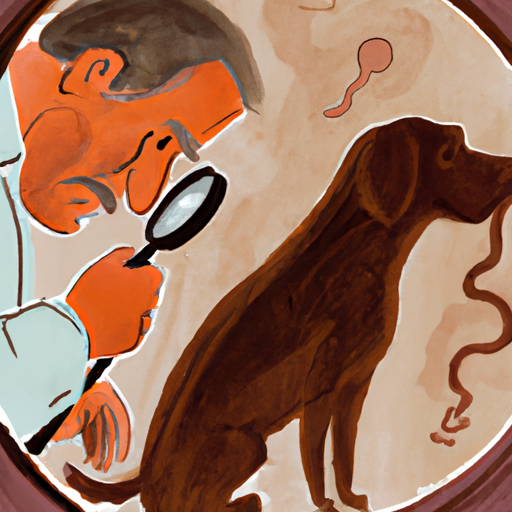What Are Roundworms and How Do Dogs Get Infected?
Roundworms, scientifically known as Toxocara canis, are one of the most common parasites that infect our furry friends. These slender and spaghetti-like worms reside in a dog’s intestines and can grow up to 7 inches long.
The Transmission Cycle
As a caregiver, you may wonder, “How does my dog get infected?” Well, let’s break down the transmission cycle:
- Larval Stage: The worm starts as a microscopic larva, which can be present in the environment or already in an infected dog.
- Ingestion: Dogs get infected when they ingest the infective eggs from the environment, usually by sniffing, licking, or ingesting contaminated soil or feces.
- Development: Once inside the dog’s body, the eggs hatch into larvae, migrate to the intestines, and grow into adult worms.
The Impact of Roundworms on Your Dog’s Health
Roundworms can cause various health problems in dogs, especially puppies. They deprive your pet of essential nutrients, leading to weight loss, dull coat, and overall poor condition. In severe cases, they can cause a potbelly appearance and even life-threatening intestinal blockage.
How to Prevent Roundworm Infection
Prevention is always better than cure. Here are some measures you can take:
- Regular Deworming: Consult your vet for a regular deworming schedule, especially for puppies.
- Cleanliness: Keep your dog’s living area clean. Regularly dispose of feces and avoid letting your pet eat or play in contaminated areas.
- Regular Vet Check-ups: Regular vet visits can help detect and treat infections early.
How to Treat Roundworm Infection
Roundworm infection in dogs is treatable. Your vet will prescribe a deworming medication, which should be administered as instructed. The medication works by paralyzing the worms, allowing them to be expelled through the dog’s feces.
Detecting Roundworm Infection
Early detection of roundworm infection is critical. Symptoms to look out for include:
- Weight loss
- Dull coat
- Potbelly appearance
- Coughing
- Vomiting
- Diarrhea
However, some dogs may show no symptoms at all, making regular vet check-ups all the more important.
FAQs
Q: Can I get roundworms from my dog?
A: Yes, humans can get roundworms from dogs, especially children who play in contaminated areas. Always ensure good hygiene for both your pet and yourself.
Q: How often should I deworm my dog?
A: The frequency of deworming depends on your pet’s lifestyle and risk factors. Your vet can provide the best advice.
Q: Are certain dog breeds more prone to roundworm infection?
A: No, all dog breeds are equally susceptible to roundworm infection.
Q: Can roundworms be fatal to my dog?
A: In severe cases, roundworms can lead to life-threatening complications. However, with early detection and proper treatment, most dogs recover fully.
Remember, as a caregiver, your pet’s health is in your hands. Regular vet visits, good hygiene, and a keen eye for symptoms can go a long way in ensuring a happy, healthy life for your furry friend.



